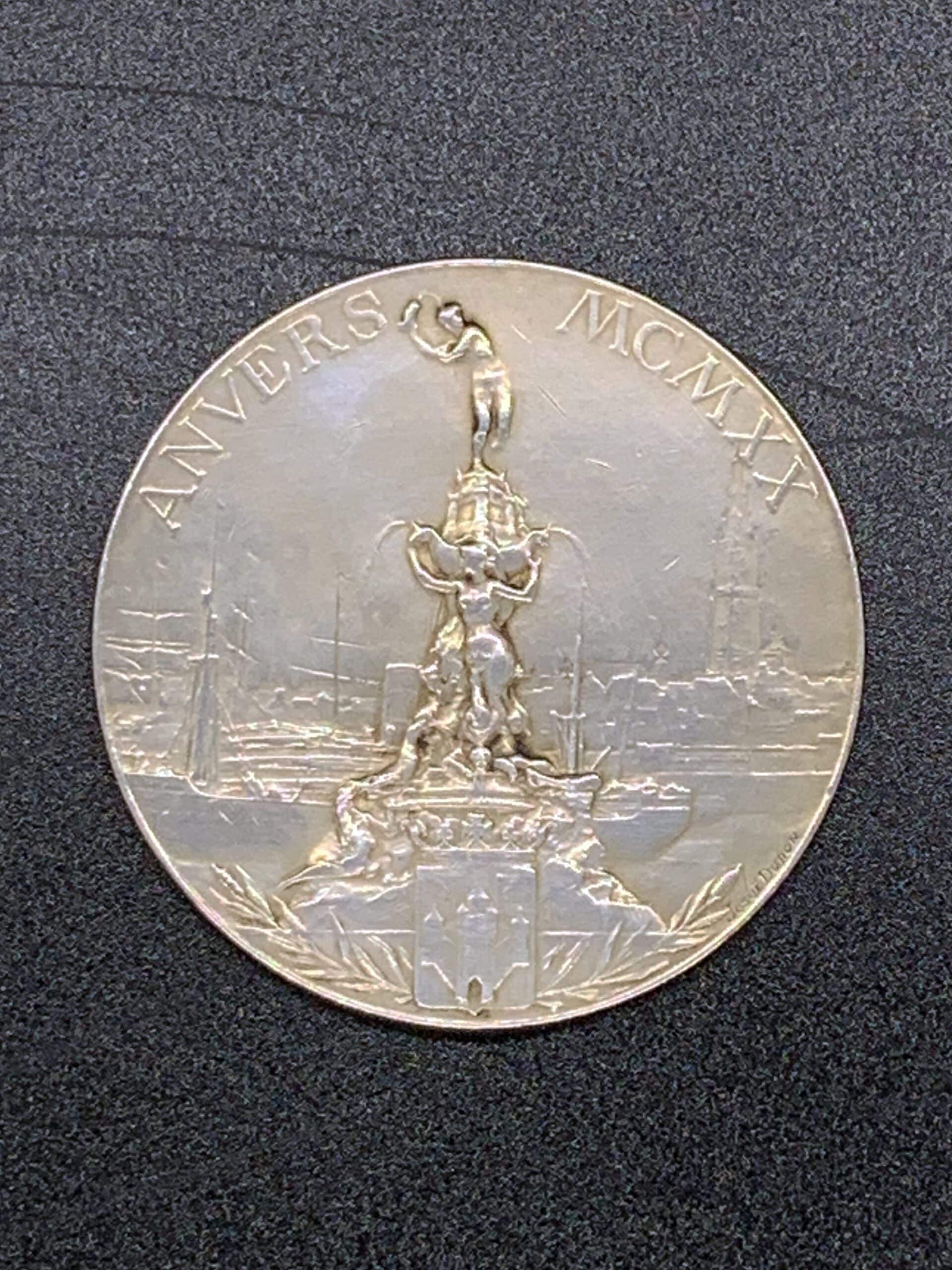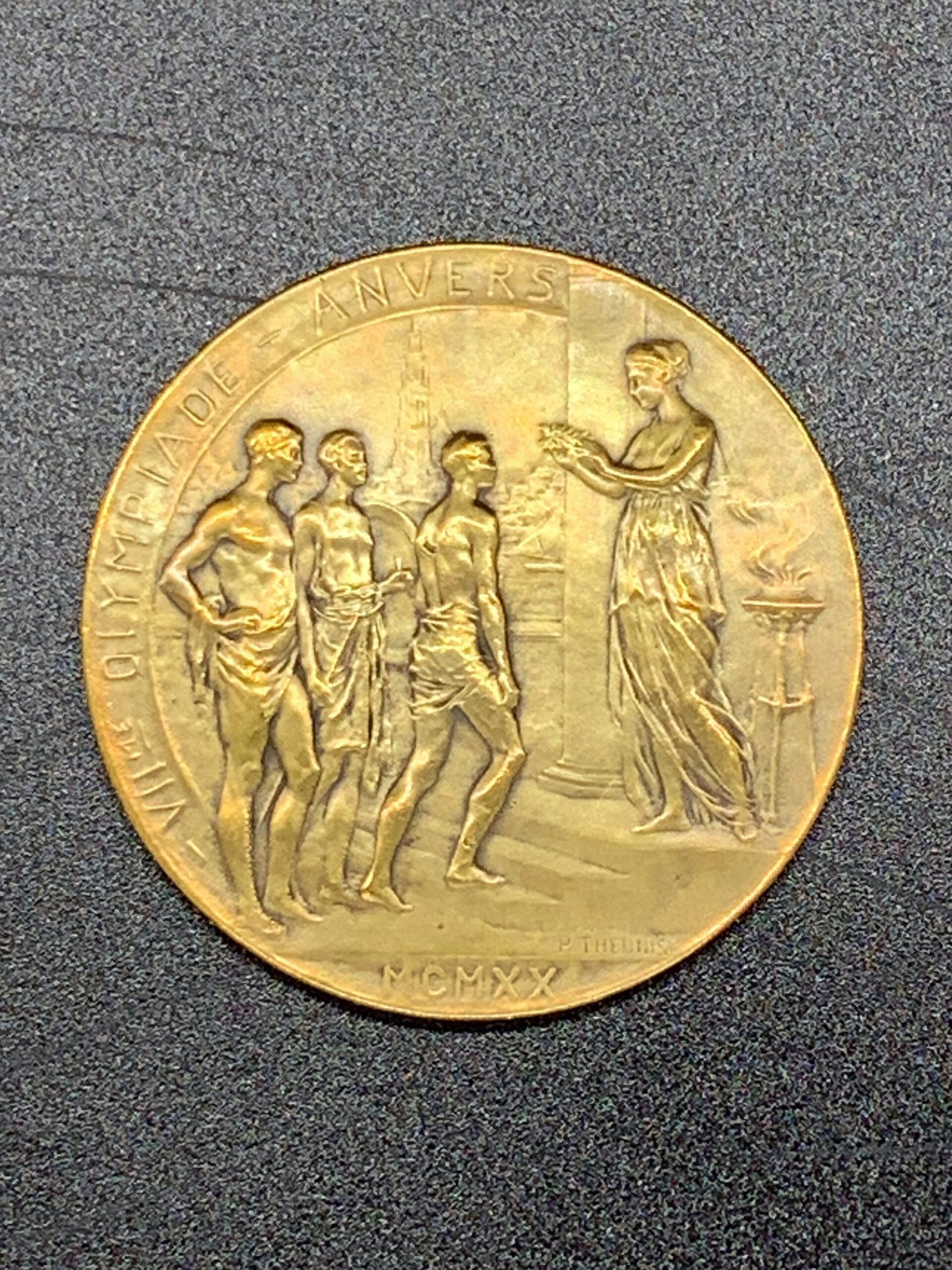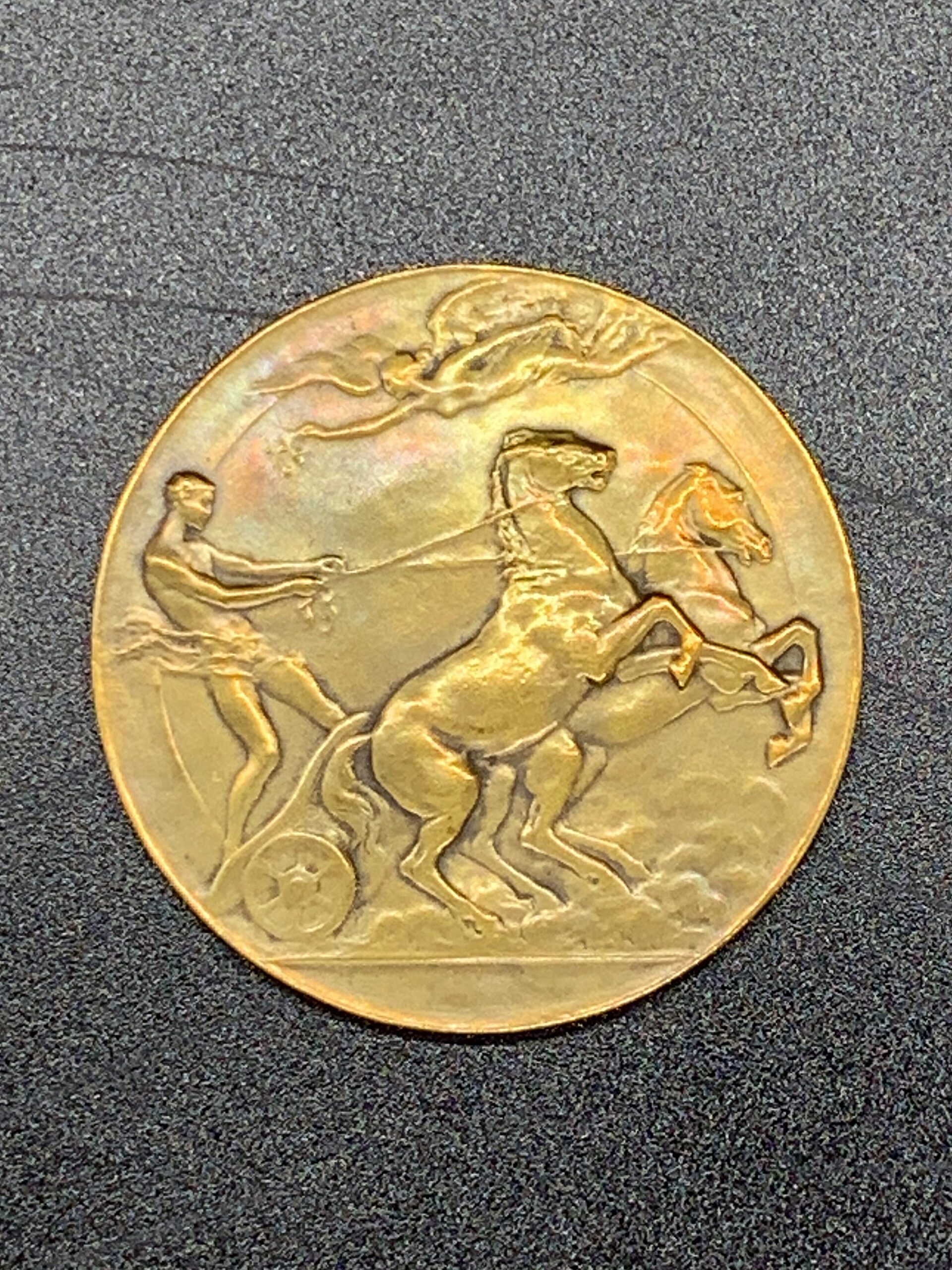The Hockey Museum has had its first sight of a 1920 Olympic gold medal. It was won by Harry Haslam, the Great Britain goalkeeper at the Antwerp Games, and has been loaned to the Museum, together with other memorabilia, by Haslam’s family.
It will be displayed at a private presentation at the Museum on 5 September, when members of Haslam’s family will receive his Great Britain honours cap. Saturday is the centenary of the final day of the 1920 Olympic hockey tournament, played as a round robin event, and the centenary of the awarding of gold medals to the GB team. GB had beaten Denmark (5-1), hosts Belgium (12-1) and were awarded a walkover in their final game against France to secure gold. The official launch and presentation of honours caps to the Great Britain teams, most of whom will be going to the Tokyo Olympics, will be made at a Pro League weekend next May.
Besides the gold medal, the memorabilia includes an oil painting of Haslam, an Antwerp participation medal and civilian medals.
The Antwerp medal (as described below on the Olympics website) is of gold gilt, unlike the 1908 London Olympic gold medal held on loan by The Hockey Museum, and looks more like silver. It is believed less expensive metal was used because money was still scarce so soon after World War One.
 |
 |
|
| Harry Haslam’s gold medal from the Antwerp Olympic Games of 1920. Font: left / Obverse: right |
||
The 1920 Antwerp Olympic Medal is described on the official Olympic website thus:
“On the obverse, a tall, naked athlete, holding in his left hand a palm leaf and a laurel crown, symbols of victory. Behind him, the figure of the Renommée playing the trumpet. In the background, a frieze with a Greek motif with the inscription “VII OLYMPIADE” underneath.
On the reverse, the Antwerp monument, commemorating the legend of Brabo throwing into the Scheldt the hand of the giant Druoon Antigoon, who had been terrorizing the river. In the background, the cathedral and port of Antwerp. In the top half, the inscription “ ANVERS MCMXX ”.
The legend says that in Antiquity, this cruel giant forced all vessels on the river to pay a toll. If the captain refused to pay, he cut off his hand. The giant spread terror amongst the sailors for many long years, until the day he met Silvius Brabo. This courageous Roman soldier dared to take on the giant and succeeded in killing him. As revenge for his victims, he cut off the giant’s hand and threw it into the river. This is where the name of the city comes from – “Antwerp” means “thrown hand.”
 |
 |
|
| Harry Haslam’s participation medal from the Antwerp Olympic Games of 1920. Font: left / Obverse: right |
||
Great Britain’s gold medal at the 1920 Antwerp Olympic Games came under strange circumstances, allegedly arising from a misguided piece of skulduggery.
Only four nations competed at these Games and, after round robin matches, the gold medal was to be decided by the last game between Great Britain and France.
The Ilford Recorder in an article on the GB goalkeeper Harry Haslam, whose club was Ilford HC, on July 18 1996 described the affair thus:
“Great Britain’s opponents invited our lads out on the town – with the intention of drinking them legless. The French found their opponents were made of sterner stuff than themselves in the hangover league and the inebriated opposition actually conceded the next day’s final following their mutual night out on the town.”
Another source, also penned many decades later, refers to an epidemic near the French team’s accommodation. This may of course be a tactful way of suggesting the French team were the worse for wear, or it could be sincere.
The French finished last after losing their other two games.
 |
| An informal photograph of the Great Britain hockey team at the Antwerp Olympic Games of 1920. |



